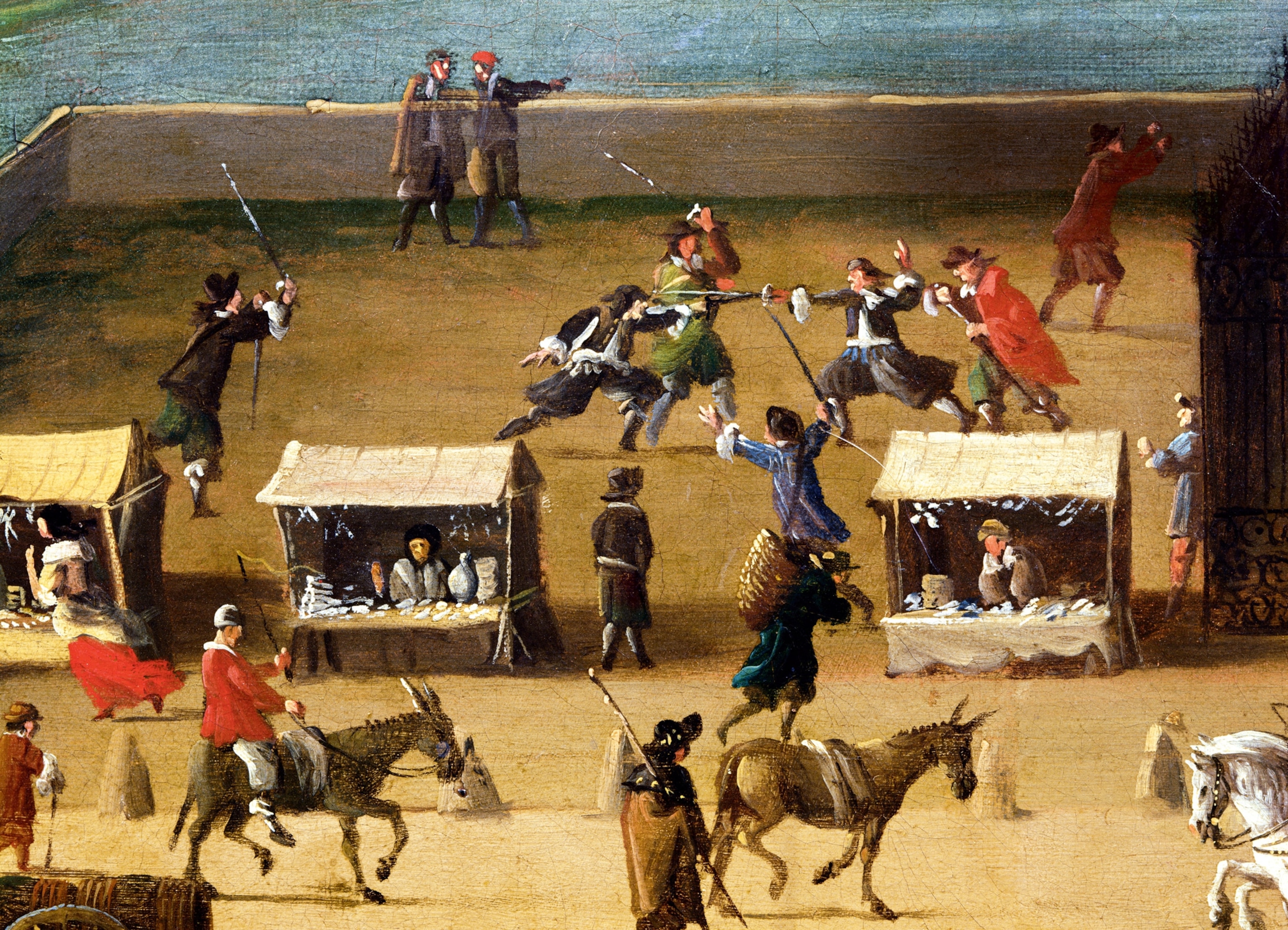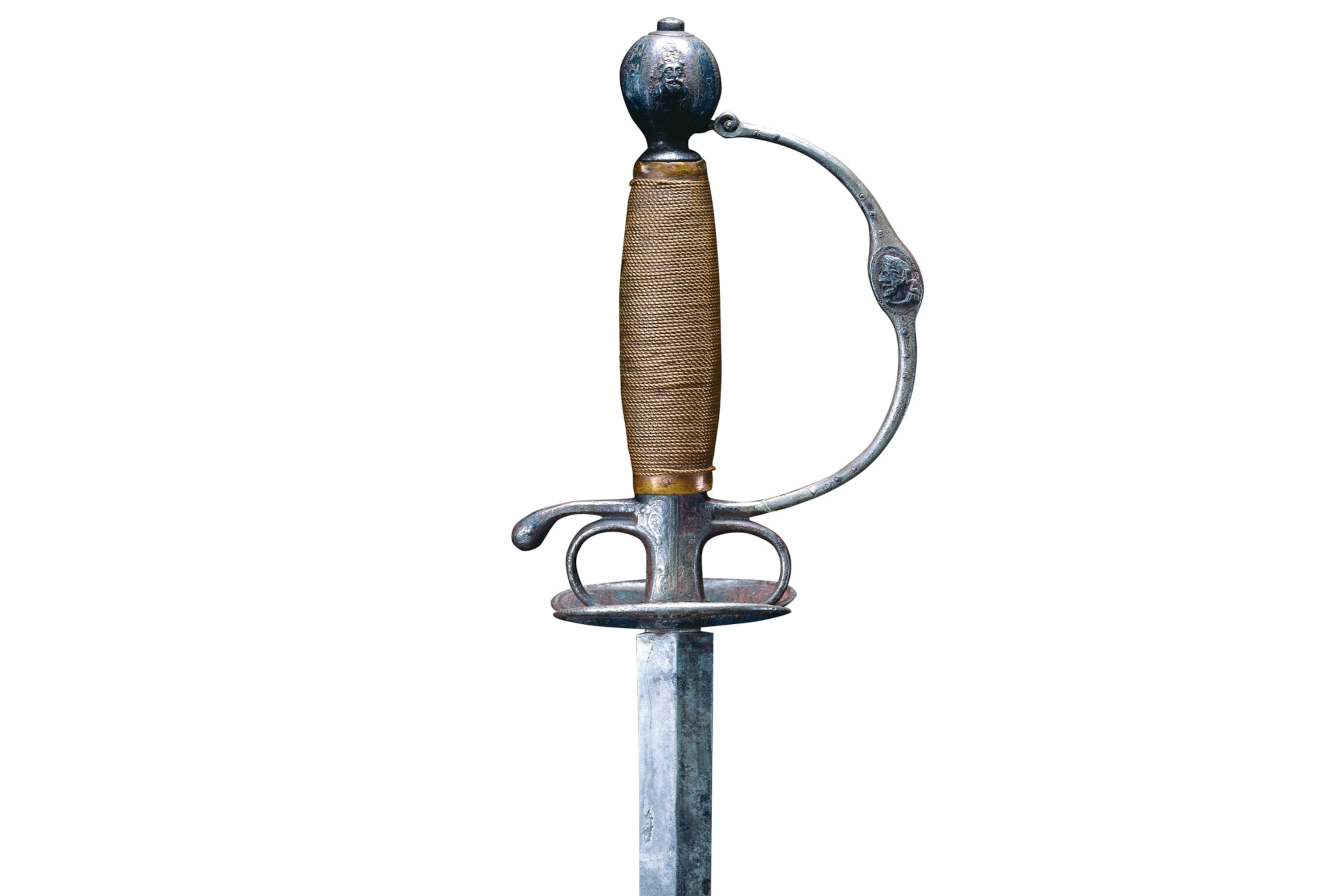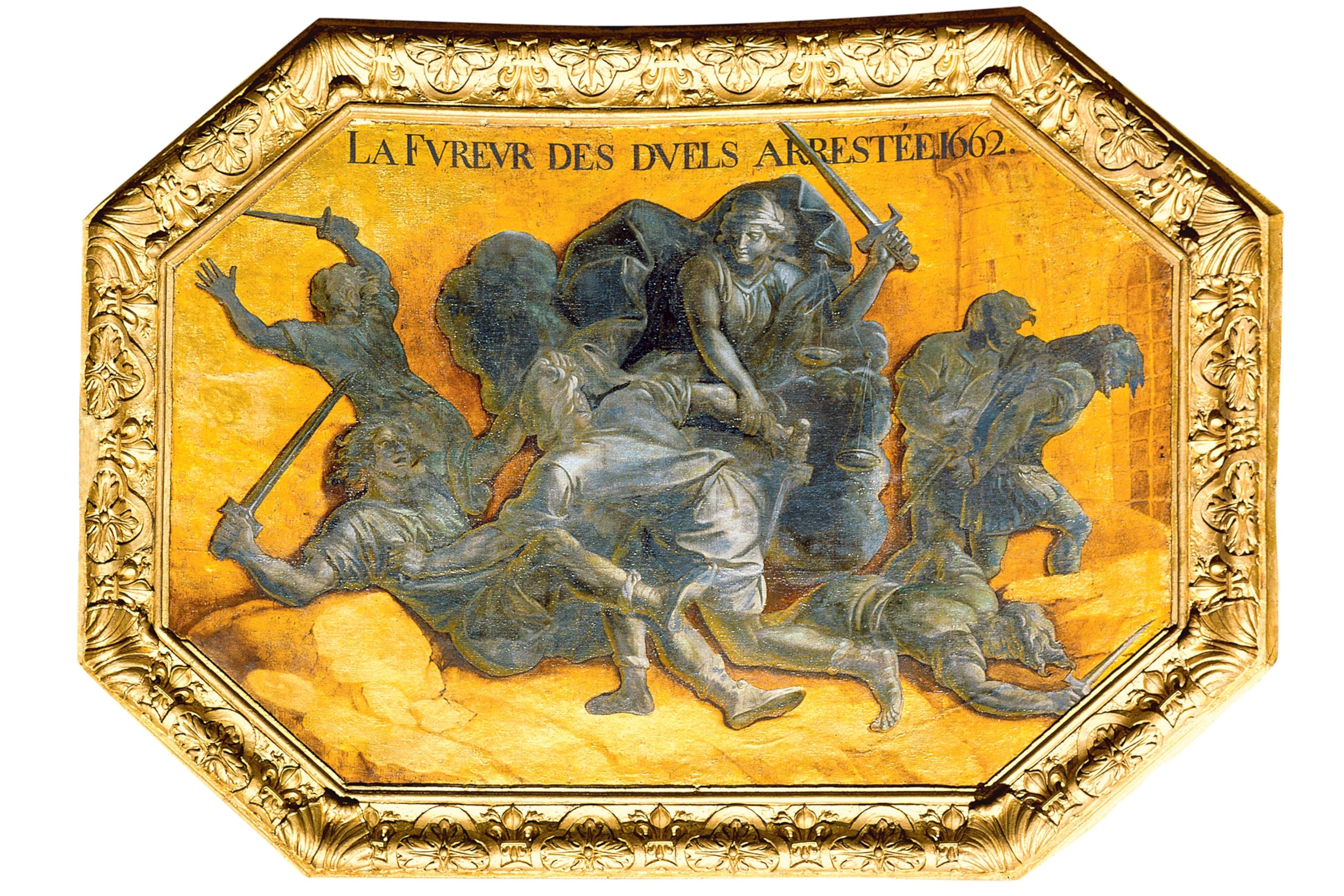En garde! Why France was the dueling capital of Europe
For centuries, it was common for French gentlemen to defend their honor on the dueling ground, despite a government ban on the tradition.

On May 12, 1627, at about two o'clock in the afternoon, the Count of Bouteville and the Marquis of Beuvron met in a Paris square, for the express purpose of defending their honor. A skilled swordsman, the 27-year-old Bouteville was a veteran of many duels and had killed at least half of his opponents. One of his victims had been a relative of Beuvron, who spent months trying to arrange a duel with the count for vengeance.
The two men removed their coats, and fought, first with a sword and dagger and then with a dagger alone. Their duel ended with a grapple, each holding a dagger at the other’s throat—at which point, both men decided to stop. Even so, blood would indeed be spilled that day: Their friends, witnessing the duel, had become embroiled in a scuffle that left one of them dead and the other seriously wounded. Although duels had the air of formality, they too often descended into chaos and bloodshed.

Affairs of honor
The cry of En garde! and the sound of drawing swords was common in Paris and other French cities. The custom was widespread in other countries, but France seems to have been the dueling capital of Europe. Affairs of honor were so ingrained in the national consciousness that they appear in some of France’s most iconic stories, such as The Three Musketeers, written in 1844 by Alexandre Dumas and set in the swashbuckling 17th century.
Duels took many forms. Sometimes they sprang from a chance encounter without any formal preparation. For example, in 1613, the Chevalier de Guise was walking along Rue St. Honoré in Paris when he happened to spot a man, the Baron of Luz, who had spoken badly of Guise’s father. Guise dismounted, drew his sword, and called on the baron to do likewise. The baron was an old man and barely able to defend himself against the young and impetuous Guise, who killed the baron with a single thrust. Even by the standards of the day, this encounter resembled murder more than a duel. (Did this gilded sword belong to Blackbeard?)

A series of rituals were usually associated with duels. One of these was the preliminary challenge. When a man’s honor had been offended, he could challenge the offender to a duel by speaking to him, slapping him, or sending him a written message. For example, after burying his father, the Baron of Luz’s son sent his squire to Guise’s house to present him with a card that read: “Monsieur, you are hereby invited to do me the honor of meeting me, with sword in hand, to receive justice for the death of my father. This gentleman [the squire] will take you to the place where I await you with a good horse and two swords of which you may choose the one you prefer.” The duel took place. Having killed the father, Guise then killed the son.
Duels often took place on the outskirts of town where the authorities would not interfere. In Paris, an area near the Seine known as the Pré aux Clercs was well known as a popular spot for dueling. But affairs of honor could also take place in the city. In the 1630s Cardinal Richelieu complained that “duels have become so common in France that the streets are turning into battlefields.”
Rules of combat
A series of informal rules regarding clothing and weapons ensured the honor of all participants. Duelists often fought in shirtsleeves with their chests exposed to a rival’s sword. While prohibited from wearing armor, some combatants attempted to wear protection concealed in their clothes.

The most popular weapons of choice were swords, specifically rapiers. These elegant instruments did not cause mutilations or disfigure the rival’s face—they were, however, the most lethal of all swords. Although firearms were considered contrary to the aristocratic ideal of personal bravery, many cases of duels with pistols are recorded, especially later in the 17th century. (Scientists look at whether it's advantageous for dueling gunslinger to draw first.)
A new feature of duels in the 17th century was the presence of seconds. These men not only accompanied the duelists and made sure the rules were followed, but also could—as in the Bouteville case—end up fighting each other, too. When a second defeated his rival, he could even go to the aid of the duelist he was accompanying, creating a situation of two against one. This action did run counter to the notion of settling scores between two men. Writing in the second half of the 16th century, the great essayist Michel de Montaigne noted: “’Tis also a kind of cowardice that has introduced the custom of seconds, thirds and fourths... they were formerly duels; they are now skirmishes.”
In spite of the potential for chaos introduced by seconds, alternatives to fighting existed that could both satisfy honor and prevent tragedy. In addition to the opportunity for reconciliation before crossing swords, duelists could accept satisfaction from the moment one of them slightly wounded the other in duels to “first blood.” Sometimes fights were a farce to save face and the two opponents might accept satisfaction after exchanging a couple of blows. But many duels ended with the death of one of the participants. From information provided by a mid-17th-century French chronicler, Tallemant des Réaux, it can be calculated that, of the hundred or so duels and challenges he describes, more than a third did not take place because prior agreement had been reached. Of the duels that did go ahead, half ended in the death of one or more combatant. (See the medieval sword pulled from a Polish bog.)
A Matter of Skill... and Honor

A French nobleman, the future Cardinal of Retz, recounts how, age 20, he challenged a man with whom he was competing for a lady’s affections. His vivid account of the duel reveals how he managed to satisfy honor and emerge unscathed: “We fought the next morning. After launching a thrust at me that brushed past my chest, he passed over me [i.e., he advanced with his left foot to catch and disarm him]; he threw me to the ground and would have been at a complete advantage had he not dropped his sword when he grabbed me. I tried to pick up my own sword to stick it in his kidneys but as he was stronger, he crushed my arm and I was unable. We stayed that way until he said, ‘Let’s get up. There is no honor in a fistfight. You are brave young man and have my esteem. You can say I gave you no reason to fight me.’”
Out of favor
Other historians have calculated that during the reign of Henry IV of France (1589-1610) around 10,000 duels took place in the country, involving 20,000 duelists, 4,000 or 5,000 of whom lost their lives. Some “duelists” used the ritual as a cover for butchery. A certain Chevalier d’Andrieux, for instance, killed 72 men until he was tried and executed.
Increasingly, throughout the 17th century, the authorities had reason for concern at the proliferation of such spectacles. Legislation against dueling became ever stricter, in spite of the fondness some had for this tradition. Bouteville, for instance, was arrested straight after his duel with Beuvron, and Cardinal Richelieu had him sentenced to death. King Louis XIV later issued edicts banning duels in the late 1600s.
Although the practice declined over the years, it lingered until surprisingly late. The last duel in France took place in 1967, when René Ribière challenged a fellow politician for having insulted him. Filmed for posterity, the sword-wielding combatants agreed to halt only after Ribière was wounded twice.